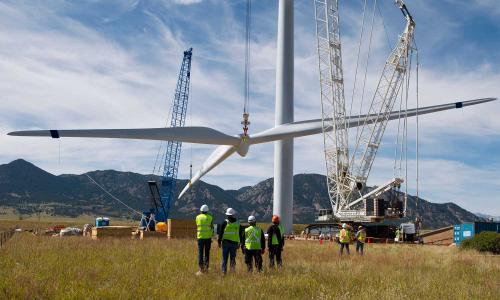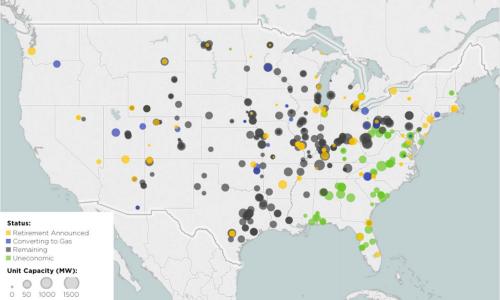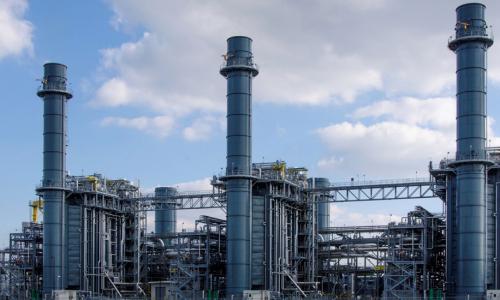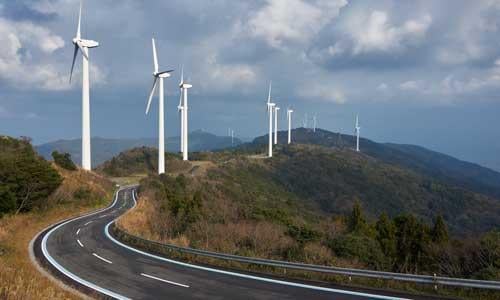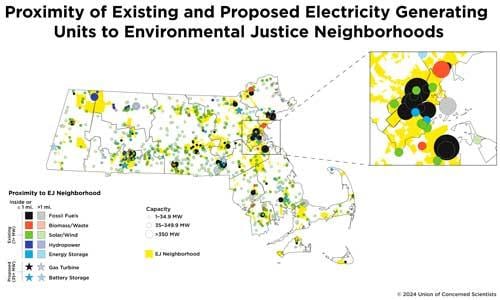Table of Contents
Coal, gas, and other fossil fuels are neither sustainable nor safe. We shouldn’t use them.
of global warming emissions
Coal, oil, and methane gas are fossil fuels formed over time from the remains of living organisms. In the United States, they supply most of our energy needs, including roughly two-thirds of US electricity generation.
But fossil fuels come with a cost. Coal smoke is linked with everything from asthma and birth defects to cancer and premature death. Gas fracking is tied to contaminated groundwater and earthquakes. And oil is the single largest source of air pollution and smog in the world.
Fossil fuels are also the main source of global warming emissions, one of the most pressing existential issues facing humanity today. Understanding the scope of their impacts is critical for informing our choices around energy production—and for preventing the worst impacts of climate change.
Coal
The United States has burned coal for over 100 years. Most of it is mined either deep underground, from the tops of mountains, or in expansive open-surface mines in the American West. It’s then hauled by train and barges to coal-fired power plants across the country.
But America’s long history with coal shouldn’t be romanticized. More than 100,000 people have died in American coal mines—more than the number of servicemen lost in the Korean and Vietnam wars combined. Countless others suffer from its debilitating health effects; worldwide, coal causes more deaths than natural disasters, homicide, road accidents, and measles combined. Until recently, it also was the single largest source of US carbon pollution.
Today, coal’s future in the US power system is uncertain. Many plants are losing in the face of economic competition from gas and renewable energy; keeping those plants running is driving costs up. Transitioning away from coal is the only long-term strategy that makes moral, environmental, and economic sense.
Methane gas
For most of the twentieth century, gas played a relatively minor role in the US power sector. But with the rise of hydraulic fracturing (“fracking”) and horizontal drilling in the early 2000s, gas took off—with serious implications for the climate.
When leaked into the atmosphere, the main ingredient in so-called "natural" gas—methane—acts as a potent heat-trapping gas. When burnt, it releases carbon dioxide and other pollutants.
As such, gas has a very limited role to play in the clean energy economy. It burns more cleanly than coal, and makes the transition away from coal easier and quicker. But investing in gas brings its own economic and safety risks, and won’t bring the emissions reductions we need.
Oil
While not widely used in the power sector, oil is used for energy, in the form of gasoline, diesel, and jet fuel. It’s incredibly dirty: transportation is the largest source of carbon pollution in the United States and a major cause of asthma, bronchitis, and certain cancers.
Oil companies are also some of the most active and vocal opponents of climate action in the world. ExxonMobil and others have spread climate disinformation for decades, while funding groups that fight against efforts to curb carbon emissions.
Oil’s future is uncertain. It’s by far the most popular fuel used in vehicles, though electric cars and other advanced vehicle technology may change that. Without a dramatic decrease in global oil consumption—and a decrease in the political power held by oil and fossil fuel companies—we likely won’t be able to prevent catastrophic climate change.

